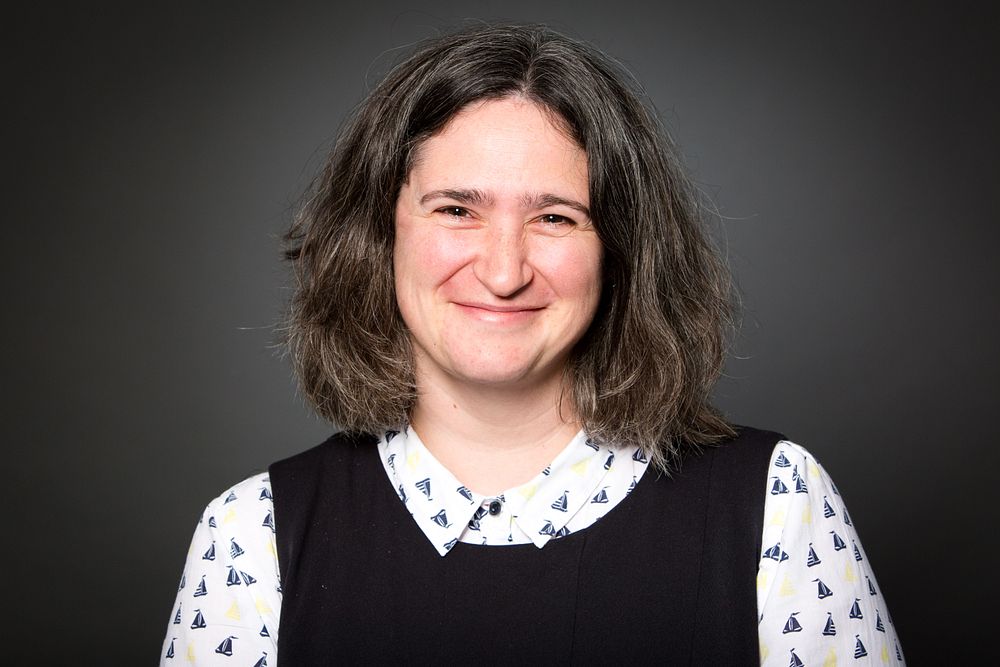Blog post -
Build it back better, the inter-connectedness of all things
 Strategic Relationship Manager Lorna Leach is back for part two of her Build It Back Better blog looking at how connections made during the covid-19 lockdown should become the starting point of long-term, meaningful collaborations for the physical activity and sport sector.
Strategic Relationship Manager Lorna Leach is back for part two of her Build It Back Better blog looking at how connections made during the covid-19 lockdown should become the starting point of long-term, meaningful collaborations for the physical activity and sport sector.
In my blog last week I wrote about how coronavirus has caused the sector to make leaps forward on putting the individual at the centre of the decisions made and innovations created to support them to lead active lives.
The products created now will continue to support Londoners to be active in the long-term.
In addition, coronavirus has caused upheaval to systems, process and policy that should allow London to be a better connected, collaborative across sectors and system that, for decades, have stubbornly failed to understand each other.
This won't be simple though. Change habitually causes organisations and individuals to take less risks, be less open to sharing resources and collaborating.
A crisis though is often the best time to be brave and open to doing things differently because all of sudden the ‘normal’ rationales, like budget restrictions and time scales, are open to agile decision making.
Look at some of the incredible achievements in our #WeAreNotSpectators campaign as an example.
Over the last two months I’ve also seen some wonderful change in policy, processes and systems that have come about because the gloves are off when it comes to what is possible.
It’s come from coronavirus creating shared purpose – specifically in two areas:
1. Protecting vulnerable Londoners – getting supplies, services and socialisation to people stranded at home.
2. Getting key workers around the capital safely and social distant - the Mayor's bold new Streetspace plan will overhaul London's streets.
As a Strategic Relationship Manager at London Sport I’ve heard of council employees doing roles far removed from their pre-lockdown focus throughout the last eight weeks.
Sports development officers have led voluntary response efforts and delivered medicines and food to vulnerable residents, many are now also part of the clean-up efforts in London’s parks and refuge services.
Putting aside the obvious proof that softer skills are more transferable than you think, this redeployment could be considered one big networking event crossed with an interview/probation period.
This, like #WeAreNotSpectators, proves the sectors' ability to be agile in thought and deed.
Connections are being made right now that the sport and physical activity sector has been trying to create for years.
If our sector can prove now just how valuable it is to ensuring the physical and mental health of the nation, how ready it is to provide solutions to isolation, crime and, serious youth violence, it will be the groundwork of a conversation on how we work together with health, communities, transport and environment sectors long-term.
Sports clubs and community activity providers are offering up their clubhouses for foodbanks, their coaches and volunteers are looking after the vulnerable and they are getting to know the voluntary and community sector even better.
We are all learning from each other and making resources go further.
We are being brave in the face of changes that could bring our sector to its knees.
These connections cannot be lost. They can become the starting point of collaborations where the sector has a better understanding of other sectors.
If we really do build it back better we’ll end up with a collaborative and connected community of big and small, borough-wide, local and hyperlocal organisations that will be able to make quick, clear and impactful decisions that benefit residents.
We’ll find that where, for a physical activity and sports officer from the council; who has struggled to get health services to talk about how physical activity can be part of the solution to managing long-term health conditions, preventing childhood obesity or tackling mental ill-health; it is easier to get the conversation started because the trust is there from an existing relationship.
I hope that clubs too will gain a better understanding of what the voluntary and community sector both needs and has to offer.
I hope they will survive the potentially crippling financial impact of lockdown and thrive in the 'new normal' because they're recognised by the community they served so diligently during the covid-19 outbreak.
The sector has so many valuable assets and if these hopes become reality we'll be in a much better place than when we entered lockdown back in March.
Topics
- Health, Health Care, Pharmaceuticals
Categories
- london sport awards
- coronavirus
- lorna leach
- collaboration
- innovation
- covid-19
Regions
- Greater London